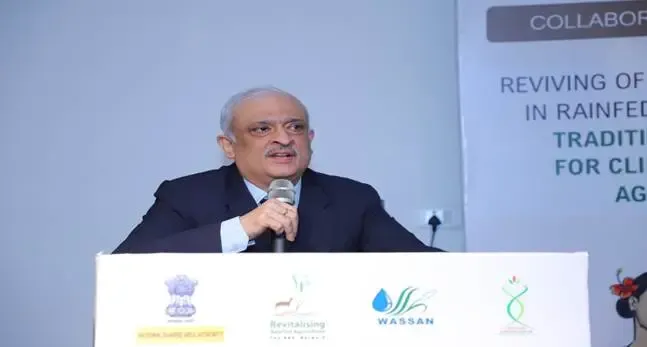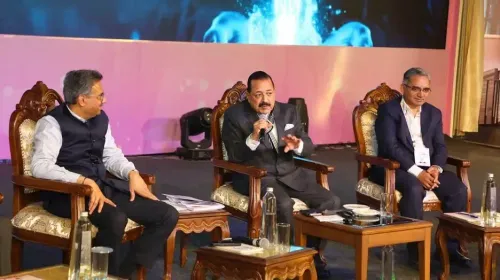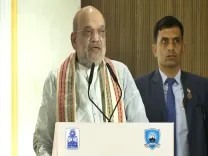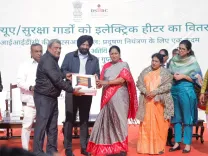Government Aims to Advocate Traditional Crop Varieties for Climate-Resilient Agriculture

New Delhi, Dec 26 (NationPress) The government is focused on advocating traditional crop varieties for resilient agriculture and horticulture throughout the nation to combat the challenges posed by climate change, according to Union Agriculture Secretary Devesh Chaturvedi on Friday.
During the workshop titled "Reviving Agro-Biodiversity in Rainfed Areas through Traditional Varieties for Climate-Resilient Agriculture," he emphasized that the Ministry is dedicated to promoting traditional varieties via various agricultural and horticultural schemes, including NMNF, Farmers' Producer Organisations (FPOs), Seed Development programs, and the NFSM.
He noted that traditional varieties possess distinct attributes such as enhanced taste, aroma, color, cooking quality, and nutritional value. These varieties should be cultivated in clusters and marketed effectively for achieving higher price realizations due to consumer preferences for such characteristics.
With 61 percent of India's farmers depending on rainfed agriculture, covering 50 percent of the nation's land, the workshop underscored the significant role of traditional varieties in maintaining these agricultural systems.
Champion farmers, seed saviors, and state representatives from 10 states, including Tamil Nadu and Odisha, showcased indigenous seeds and shared their experiences—both successes and challenges—in the conservation of traditional varieties. The panel discussions highlighted the necessity for formalizing community-managed seed systems, government backing for infrastructure and MSP, and the engagement of grassroots organizations in seed conservation initiatives.
The workshop aimed to encourage discussions and policy dialogue regarding rainfed areas, as traditional varieties face extinction amidst increasing agricultural vulnerability due to climate change. All participants acknowledged the critical need for conserving traditional varieties through active utilization. Success stories from Tamil Nadu, West Bengal, and Odisha were presented, illustrating how these states are facilitating the revival and integration of agricultural diversity.
Experts concurred that an action plan and recommendations must be formulated for submission to the Ministry of Agriculture and Farmers Welfare. There are also opportunities to link traditional varieties to markets and promote them within natural farming schemes. The necessity to build upon strategies already employed for millet promotion by the government was also highlighted.
Rainfed areas, characterized by challenging conditions such as low soil fertility and climate unpredictability, heavily rely on informal seed systems—including farmer-to-farmer exchanges and community-managed seed banks. Nearly half of India's seed requirements are fulfilled through such systems, emphasizing the importance of their conservation and promotion.










